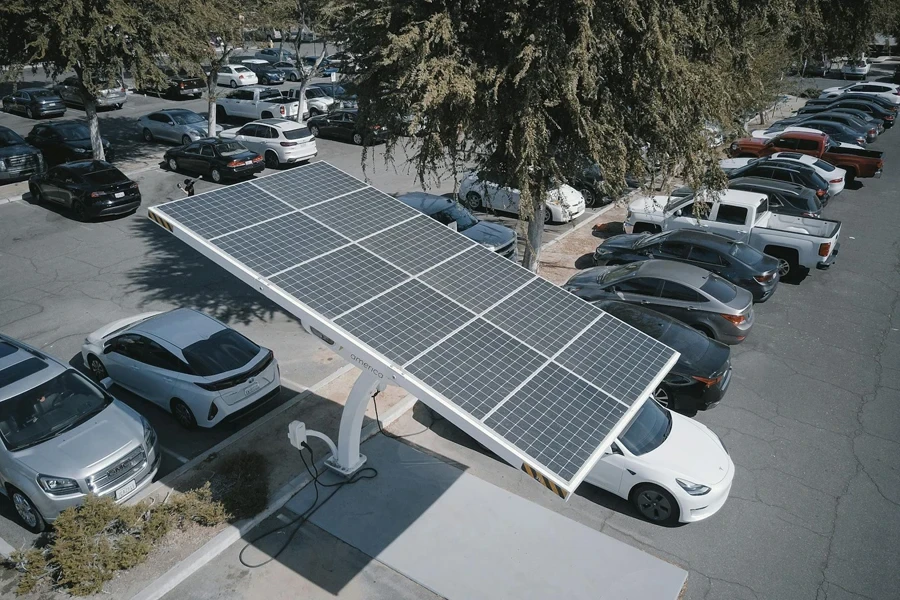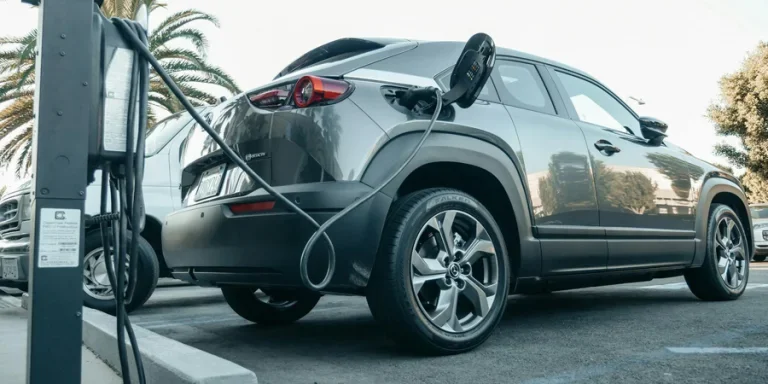Table of Contents
1. Introduction
2. Market overview
3. Things to consider when selecting electric cars
4. Some models and their features
5. Conclusion
Introduction
Electric cars are reshaping the automotive industry, offering a sustainable alternative to traditional gasoline-powered vehicles. As the market expands, driven by technological advancements and increasing environmental awareness, the adoption of electric vehicles (EVs) is surging globally. Consumers considering an EV should evaluate factors like range, charging infrastructure, and the economic benefits of lower operational costs. With governments worldwide promoting EVs through incentives, the shift towards electric transportation is accelerating rapidly. This introduction explores the dynamic landscape of electric cars, highlighting essential considerations for prospective buyers.

Market overview
The electric vehicle (EV) market has experienced remarkable growth and is set to continue its upward trajectory. As of 2023, the global market valuation stands at approximately $500.48 billion and is projected to soar to $1,579.10 billion by 2030, according to Fortune Business Insights. This rapid expansion reflects a compound annual growth rate (CAGR) of 17.8% during the forecast period, emphasizing the increasing acceptance and investment in electric mobility solutions across various regions.
Market dynamics are also shifting as major automotive players and new entrants innovate and expand their EV offerings. China continues to dominate global sales, holding approximately 60% of the market, followed by significant contributions from Europe and the United States. The market is becoming increasingly competitive with a variety of models available, catering to a diverse range of consumer needs and preferences. This competition is driving down prices and spurring rapid technological advancements, further bolstering the appeal and accessibility of electric vehicles. Governments worldwide are supporting this shift with incentives and infrastructural developments, reinforcing the market’s upward trajectory.

Things to consider when selecting electric cars
Range and battery life
When selecting an electric vehicle (EV), range and battery life are among the most crucial considerations for potential buyers. The range of an EV refers to the distance it can travel on a single charge, and this can vary significantly among different models. Modern EVs are increasingly capable of ranges that meet or exceed 300 miles, catering well to the needs of most drivers, whether for daily commuting or longer road trips. Battery life not only impacts the immediate usability of the vehicle but also its long-term value as battery degradation can affect performance over time. Therefore, understanding the battery technology used in an EV, its warranty, and expected lifespan are key factors that should influence purchasing decisions. This ensures that buyers select a vehicle that not only fits their immediate needs but also remains reliable and efficient in the long run.
Charging infrastructure compatibility
Charging infrastructure compatibility is a critical factor to consider when purchasing an electric vehicle (EV), as it significantly impacts the convenience and practicality of EV ownership. Prospective buyers should evaluate the availability of public charging stations in their area and along frequently traveled routes, as well as the feasibility of installing a Level 2 charger at home for faster charging. It’s essential to check that the EV’s onboard charger is compatible with home and public charging stations in terms of power requirements and connector type. Many modern EVs also support fast charging, which can greatly reduce charging time and enhance convenience by quickly replenishing the battery at high-speed charging stations. Understanding these aspects of charging infrastructure ensures that buyers can make well-informed decisions that suit their daily needs and long-term usage plans.
Total cost of ownership
The total cost of ownership (TCO) for electric vehicles (EVs) is an essential factor to consider, encompassing not just the purchase price but also long-term expenses such as charging costs, maintenance, insurance, and potential tax incentives. EVs often have a higher initial purchase price compared to traditional gasoline vehicles; however, they can be more economical over time due to lower running costs. Electricity for charging generally costs less than gasoline, and EVs require less maintenance since they have fewer moving parts and do not need oil changes. Additionally, many governments offer significant tax incentives, rebates, and other financial benefits for EV owners, which can substantially reduce the effective cost of an EV. Prospective buyers should calculate these factors for a realistic understanding of what an EV will cost over its lifespan, comparing these figures with those of conventional vehicles to make the most economically sound decision.
Car performance and technology
Car performance and technology are crucial considerations when evaluating electric vehicles (EVs), as they significantly enhance the driving experience and appeal to tech-savory consumers. EVs are renowned for their instant torque delivery, which provides rapid acceleration and responsive handling compared to traditional combustion engine vehicles. Additionally, many EVs incorporate advanced technologies such as regenerative braking systems, which recover energy during braking to increase efficiency, and sophisticated onboard technologies including autonomous driving capabilities, advanced infotainment systems, and seamless smartphone connectivity. Safety features in EVs often include collision avoidance systems, automatic braking, and advanced driver-assistance systems (ADAS), further elevating their appeal by integrating modern technology with environmental sustainability. These performance and technology features make EVs not only an eco-friendly choice but also a forward-looking option in the automotive market.
Government incentives and regulations
Various governmental policies and incentives can heavily influence the decision to purchase an EV. These may include financial incentives like rebates and tax breaks, as well as other benefits like access to carpool lanes or reduced registration fees. Such incentives can make EVs more affordable and attractive compared to conventional vehicles.

Some models and their features
Long range and high performance
Some top electric car models are known for their impressive range capabilities, with certain cars capable of traveling up to 350 miles or more on a single charge. These models often combine high performance with advanced battery technology, providing both speed and efficiency for longer journeys.
Affordability and practical features
Affordability and practical features are crucial aspects for many consumers when considering an electric vehicle (EV). While EVs may have a higher initial purchase price compared to traditional gasoline vehicles, they offer significant long-term savings through lower operational costs. Electricity as a power source is generally cheaper than gasoline, and EVs benefit from fewer mechanical parts, which reduces maintenance costs like oil changes and engine repairs. Additionally, many EVs come equipped with practical features that enhance daily usability and comfort. For example, regenerative braking not only extends the vehicle’s range but also decreases brake wear, contributing to lower maintenance costs. Practicality is further enhanced by features such as ample storage spaces, versatile seating configurations, and user-friendly technology interfaces that help make EVs suitable for a wide range of lifestyles and needs, increasing their overall affordability and appeal.
Family-friendly with spacious interiors
When selecting a family-friendly electric vehicle (EV), spacious interiors are a key factor. Families typically require ample space for passengers and cargo, making roominess and comfort top priorities. Many modern EVs are designed with this in mind, offering flexible seating arrangements, expansive legroom, and substantial cargo space, often enhanced by the absence of a traditional combustion engine. This design allows for a flat floor, providing more interior volume and easier access for child seats, strollers, and personal belongings. Additionally, EVs often feature various in-car entertainment options suitable for long journeys, keeping children engaged and making road trips more enjoyable. The quiet operation of electric motors also contributes to a more peaceful driving experience, which can be particularly beneficial for families with young children.
Advanced technology and safety features
Electric vehicles (EVs) are at the forefront of incorporating advanced technology and safety features, enhancing both the driving experience and passenger security. Many EVs come equipped with state-of-the-art infotainment systems that include large touchscreen interfaces, voice recognition, and comprehensive connectivity options for smartphones and other devices, ensuring that navigation and entertainment are readily accessible. Safety is also a top priority, with EVs featuring a suite of advanced driver-assistance systems (ADAS), such as automatic emergency braking, adaptive cruise control, lane-keeping assist, and blind-spot monitoring. These systems leverage cameras, radar, and other sensors to provide critical real-time information, significantly reducing the risk of accidents. Furthermore, many EVs include features like parking assist and 360-degree camera views to aid in maneuvering in tight spaces, reflecting how EV technology prioritizes not only environmental considerations but also the safety and convenience of its users.
Comparative assessment across models
When comparing these models, it’s crucial to evaluate how they stack up in terms of performance, price, features, and intended use cases. Some models may excel in technology and range, making them suitable for tech enthusiasts and long-distance travelers. Others might focus more on cost efficiency and practicality, which suits city driving and budget-conscious buyers better.

Conclusion
The electric vehicle (EV) market is experiencing rapid growth, driven by advances in technology, increased environmental consciousness, and strong government incentives. As the range of available EVs expands, offering various levels of performance, technology, and affordability, consumers have the opportunity to make informed choices that align with both their personal needs and environmental goals. Choosing the right EV goes beyond individual benefit, contributing to the broader objective of reducing carbon emissions and decreasing dependency on fossil fuels. In making such decisions, buyers not only embrace a sustainable lifestyle but also play a crucial role in the global transition towards sustainable mobility.





 Afrikaans
Afrikaans አማርኛ
አማርኛ العربية
العربية বাংলা
বাংলা Nederlands
Nederlands English
English Français
Français Deutsch
Deutsch हिन्दी
हिन्दी Bahasa Indonesia
Bahasa Indonesia Italiano
Italiano 日本語
日本語 한국어
한국어 Bahasa Melayu
Bahasa Melayu മലയാളം
മലയാളം پښتو
پښتو فارسی
فارسی Polski
Polski Português
Português Русский
Русский Español
Español Kiswahili
Kiswahili ไทย
ไทย Türkçe
Türkçe اردو
اردو Tiếng Việt
Tiếng Việt isiXhosa
isiXhosa Zulu
Zulu